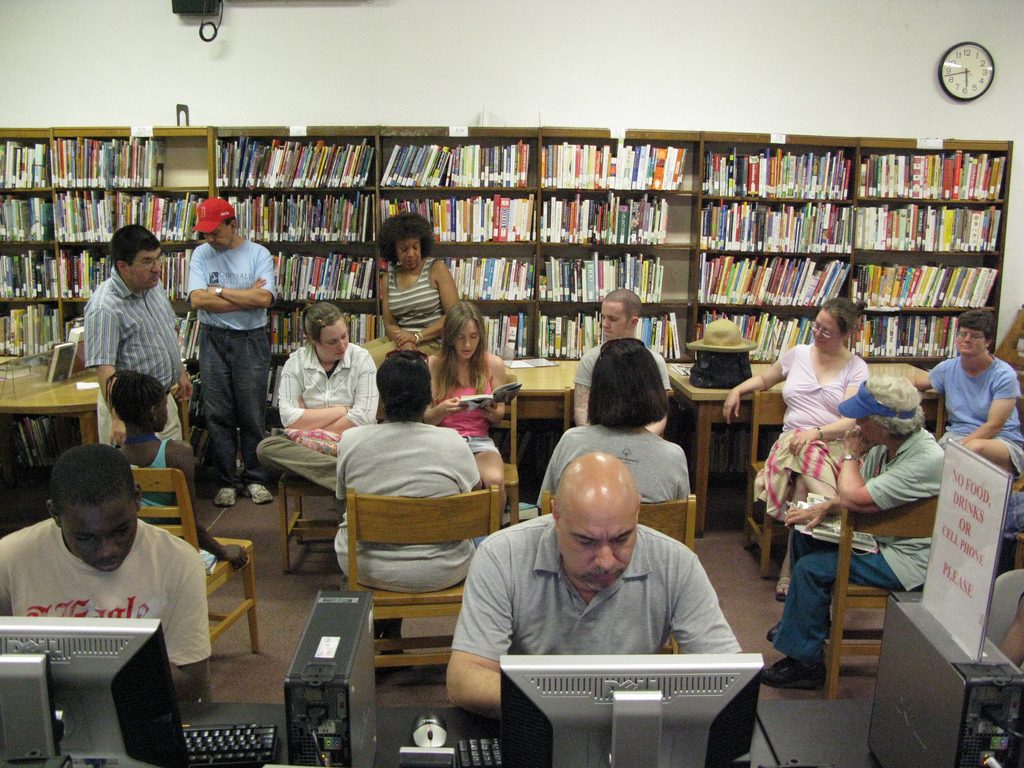How U.S. Libraries Survive—and Thrive—in the Changing Linguistic Landscape (Part 1) Posted by Transparent Language on Aug 24, 2015 in Archived Posts
All 119,000+ libraries in the United States (whether public, academic, or government) share a common goal: to serve their community. As the linguistic landscape of the U.S. shifts, libraries must adapt to better serve their diverse members.
How exactly can libraries respond to meet the needs of recent immigrants, resettled refugees, and non-English speakers in their communities? We asked ourselves the same question and looked to our library customers for inspiration. In the coming weeks we’ll share examples of how our libraries have successfully engaged and encouraged English language learners in their communities, as well as promoted learning of other languages spoken in their communities by native English speakers.
Today, we’ll look at citizenship programs. For many immigrants, the end goal is obtaining U.S. citizenship. But that path can be long, expensive, and complicated. Hopefuls must submit an application, pay a fee, pass an interview (with questions many American citizens can’t answer), and demonstrate English reading and writing abilities. Immigrants often seek legal advice and English tutoring, neither of which comes cheap.
That’s why Hartford Public Library changed the game. Since 2000, the library’s The American Place (TAP) program welcomed immigrants to the community and offered resources to smooth their transition. However, library staff had to refer participants seeking legal advice to local non-profits. That changed in September 2013, when Hartford Public Library became the first public library accredited by the United States Department of Justice Bureau of Immigrant Appeals. That’s a fancy way of saying that the library’s accredited staff can now provide immigrants with legal advice and assist with paperwork on their path to citizenship.
An estimated 300 immigrants visit Hartford Public Library each month seeking online access and assistance navigating the United States Citizenship & Immigration Services’ (USCIS) portal. That number is expected to keeping growing, as are the library’s services. Hartford combines its BIA services with free ESL courses at various branches, online English learning materials (including Transparent Language Online), and on-site citizenship classes offered in both English and Spanish.
While BIA accreditation isn’t possible or practical for every library, there are alternatives. Many libraries offer Citizenship Corners, where citizenship seekers can go to obtain helpful materials and handouts. Libraries interested in establishing their own Citizenship Corner can visit the USCIS website for more information, including handouts and a free toolkit.
Looking to better serve your community? Download our free white paper, 6 Ways Libraries are Responding to Changing Linguistic Landscapes, for more examples, including on-site language courses, online language-learning resources, and multilingual websites.

Build vocabulary, practice pronunciation, and more with Transparent Language Online. Available anytime, anywhere, on any device.





Comments:
NAMERO FLORA:
Can I get on-line training and certification in Translation (French into English)? If no, can you link me up with any Institution through which I can achieve that?
Thanks. Looking forward to your reply.
Transparent Language:
@NAMERO FLORA Hi Namero. We don’t deal with translation services or training. The American Translation Association is a better resource for those kinds of questions.
Dan:
@NAMERO FLORA Certification in Translation? Usually this can be received from your County. Or they may help with certification information or a college in your area may solve your need.
primary schools:
I love what you guys are up too. This type of clever work and exposure! Keep up the good works guys I’ve included you guys to blogroll.